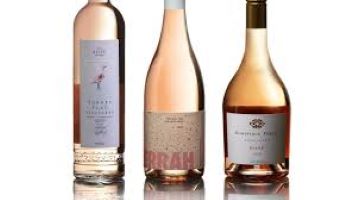The spectre of Portugal’s Mateus Rosé still hangs over rosés wherever and however they are made. First released in 1942, its peak of popularity in 1978 saw 3.5 million dozen in sales around the world. I have vivid memories of the dawn of my writing days in 1969-70, tasting it for the Sydney-based Wine & Spirit Buying Guide. It was sweet, which partly masked all manner of technical faults, and so bad that I embarked on a voyage of discovery, which revealed the consignment in question had spent the summer months in a broken-down train on the trans-Siberian railway.
There are no regulations in Australia governing any aspect of the making of rosé. It can be made simply by running off 5-10 per cent of the juice from the must in the fermenter containing the crushed red grapes; the purpose is to concentrate the colour, tannin and flavour of the remaining must, which is then fermented in whatever manner the winemaker chooses. Or there’s a rather more involved method, which begins in the vineyard with the choice of variety/varieties, canopy management and the date of picking. Since the aim is to make a wine that is fragrant and fresh, the harvest takes place earlier than usual for the variety/region in question. All three wines profiled this week have low alcohol, and are finished with no additions other than SO2. The acidity will seldom, if ever, require adjustment.
One key choice for winemakers is whether to destem, to whole-bunch press or to destem and crush. The last shortens the period of skin contact, although little turns on that. What matters is the quality of the wines and their adaptability. Gone are the days when many were made with obvious sweetness. These three wines have abundant fruit balanced by crisp acidity, making them suitable for any cuisine – or just as a cool glass on a summer’s day. They are world-class, their style unique.
2020 Turkey Flat Barossa Valley Rosé
The pale pink hue reflects early-picked grenache with carefully measured tannins. The perfumed bouquet of rose petal/spices translates to juicy red berries and a whisk of Turkish delight on the palate of this high class rosé. Length and balance are spot on. 12.5% alc, screwcap 95 points, drink to 2023, $24
2020 Sherrah Wines McLaren Vale Grenache Rosé
Sixty-year-old vines from a single vineyard high in Blewitt Springs, picked specifically for this rosé. Destemmed and three hours in the press before the pressing cycle, then cool-fermented. A spray of aromas introduce a light but juicy palate with very good balance. 12.5% alc, screwcap 95 points, drink to 2022, $25
2020 Dominique Portet Single Vineyard Yarra Valley Rosé
Hand-picked, whole-bunch pressed, fermented in used French oak, matured for six months. Pale salmon-pink; a perfumed spice/blossom bouquet introduces a complex but perfectly balanced silky palate with a delicious spread of red berry and stone fruit flavours. 13.5% alc, screwcap 96 points, drink to 2024, $38


